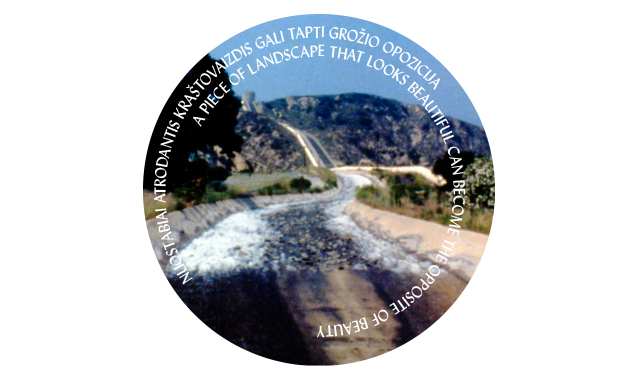
14, 16, 17 February 2019, at the CAC Cinema Hall
Curated by Lukas Brašiškis
A piece of landscape that looks beautiful can become the opposite of beauty
For over forty years now, American filmmaker James Benning has been investigating how the images of landscapes generate social, political and ecological meanings when portrayed in different styles and formats. Benning’s films reveal not only the beauty of landscapes, but also contexts in which they exist. Using off-screen narration, formal composition and long takes, in his films Benning channels historical layers of environments ("North on Evers", 1991), ecological ("Deseret", 1995) or human ("Landscape Suicide", 1987) tragedies, social problems, personal memories ("One Way Boogie Woogie", 1977), or specific biographies ("L. Cohen", 2018), ("Stemple Pass", 2012).
In one of his interviews, Benning says: "I like to look into the landscape, I like the aesthetic within it. But I also like to see the history written into landscapes, to understand historical events that took – or could have taken – place there…". Combining text and image, the artist empowers landscapes to speak for themselves and others. To paraphrase his own words: "Landscape images can say just as much as textual information, but it is precisely in their confrontation with text that they channel their actual origin".
How do mechanisms of power destine to what – and by whom – the gaze is directed, and what is understood by the viewer? Why can the cinematographic experience of time and the point of view be considered political? How can aesthetically pleasing landscapes indicate socially and ecologically tragic situations? What possibilities of storytelling are not fully explored by conventional documentary cinema? Is ecological landscape cinema possible? The search for answers to these questions is an inseparable part of viewing Benning’s films. This programme invites the viewer to experience the unique rhythm of the artist’s films, encounter invisible everyday phenomena and the implications of noticing them, and… read landscapes creatively.
Programme:
Thursday, 14 February
6 pm. Screening and presentation: Landscape Suicide, 1987, 95 min.
8 pm. Screening and presentation: Deseret, 1995, 82 min.
Saturday, 16 February
6 pm. Screening and presentation: Los, 2001, 90 min.
Sunday, 17 February
5 pm. Discussion: The ABCs of Landscape: Aesthetic Experience, Ecology and Politics. Moderated by Lukas Brašiškis
6.30 pm. Screening and presentation: Stemple Pass, 2012, 121 min.
About the curator:
Lukas Brašiškis is a researcher of cinema, filmmaker and curator, currently studying and teaching in the PhD program at the Department of Cinema Studies, NYU. Brašiškis has contributed to a number of publications on cinema and is a co-author of several books. He has curated and moderated many film events, including a retrospective of films by Nathaniel Dorsky, the "Man, Machine, Material", a programme of experimental films (together with Leo Goldsmith), a presentation of Baltic poetic documentary as ethnographic cinema in New York, Cinema Camp and others.